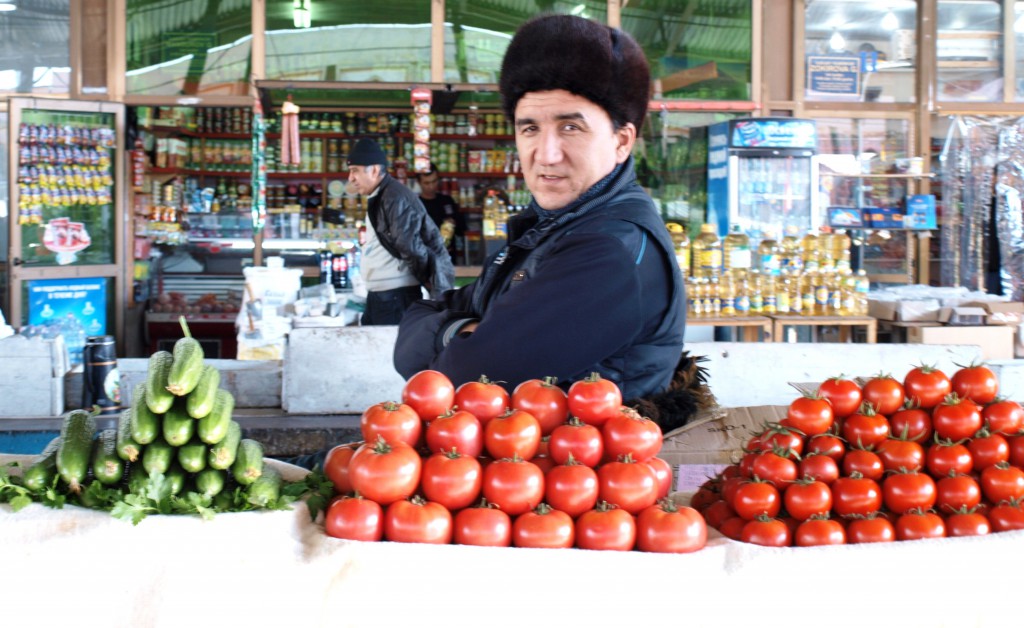3rd December 2012 Tashkent, Uzbekistan
Through the Language Glass

This week is English Week in Tashkent, with a series of events organised by the British Council with the Ministries of Public and Higher Education and other partners.
I attended the opening of an annual conference organised by the Uzbek Teachers of English Association (UzTEA) that brought together English teachers from across Uzbekistan. They were spending two days discussing teaching techniques, ranging from on-line learning to interactive classroom teaching to Harry Potter (the Harry Potter series is credited in Britain with bringing the pleasures of reading to many young people who might otherwise have missed out).
On Wednesday I’ll take part in a round table on ICT use and international standards in education.
I’m pleased that Britain, through the British Council, is supporting the Uzbek Government’s efforts to enhance standards of English teaching. Knowledge of languages other than one’s own is a great asset in today’s globalised and inter-connected world, and English language learning in Uzbekistan is part of the process of ensuring that the country can represent itself effectively on the international stage and in global markets.
Understanding other languages is also valuable in itself. It can be a door to another culture, to a different way of looking at things. A language, its structure and its vocabulary, reflect what is important in a culture, the kind of distinctions that it sees as important, its history and the influences on it over time.
Having spent much of my working life outside the UK I know from experience what a difference knowledge of another language can make. It’s not just being able to talk to people – though that’s obviously important – but understanding street signs, posters, television, songs, graffiti, poetry. It’s like living in three dimensions instead of two.
I regret that so far I know only a few words of Uzbek (though even a very little knowledge makes it clear how different some aspects of it are from other languages I’m familiar with). There’s very little Uzbek literature available in English. At the moment I’m reading a book of short poems by Navoiy in French translation. It’s full of striking images – of dark eyes, of the pains of love, of deserts and gardens, flowers and snow, but without the sound and the rhythm of the original it’s difficult to be sure how far one really understands it. I hope by the time I leave Uzbekistan I may be a bit closer to that understanding.
Discover more about you want to know more about the work the British Council is doing in Uzbekistan.
*The title of a fascinating book by Guy Deutscher that takes as its starting point arguments about whether the limited range of colour words in Homer and Hesiod meant that the ancient Greeks were colour blind.
Judicial Independence
I attended a conference organised by the Supreme Court of Uzbekistan on the rule of law and reform of the legal and judicial system. I spoke about judicial independence in the UK. It’s a complex issue in some ways – because Britain’s systems are a result of a process of accretion, of accident and incremental change, rather than a deliberate design. But the essential idea is very simple – that the rule of law, and its application in a fair way, depend on courts and judges that are not susceptible to pressure from any side – powerful groups or individuals, government or the media, religious or business leaders – and will make judgements in a way that reflects only the law and the facts of the case as they are presented in court.
At the conference we discussed how independence can be safeguarded – issues including judges’ salaries and terms of service; the relationship between the judiciary and the executive (that is, between courts and government); and how individuals can appeal against unfair decisions or actions by the courts.
For me the key question is how individuals are treated and valued – whether each person is respected as an individual, In judging the success of the system, in the UK or elsewhere, one needs to look at how the weak, the vulnerable and minorities are treated, because if their rights are respected then those of others are likely to be respected too.
